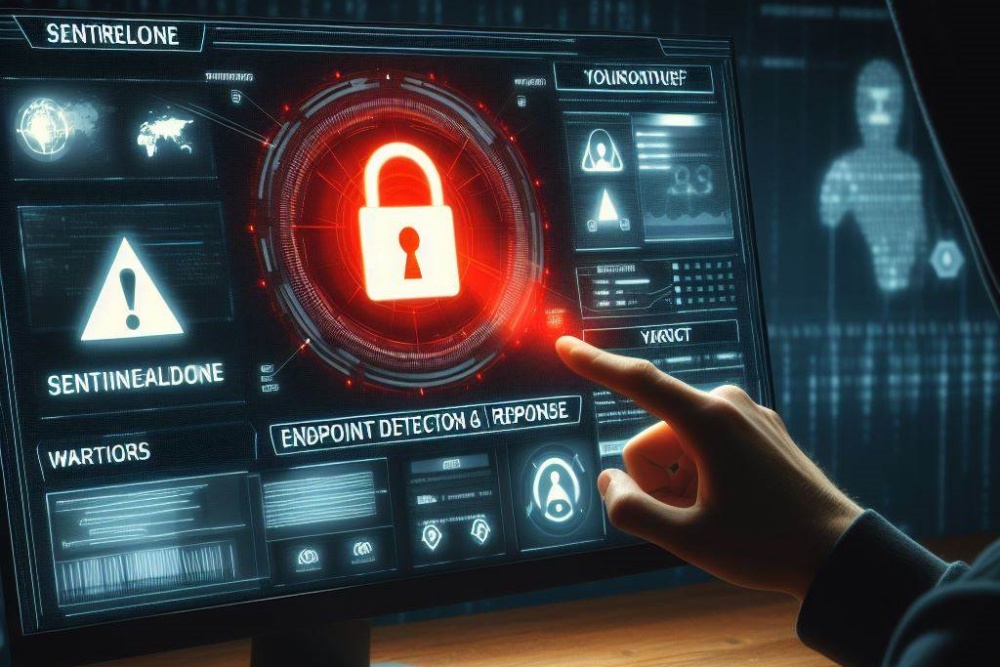Safeguarding the Energy/Utilities Industry – Battling the Rising Tide of Cyber Attacks
Today’s connectivity and automation are the norms, and the Energy/Utilities industry is a critical pillar supporting society’s daily operations. However, as technology advances, so does the threat landscape, and the Energy and Utilities industry is grappling with a growing wave of cyber-attacks. Recent incidents, such as the T-Mobile data breach and Moody’s credit risk report on cyber threats to critical infrastructure, shed light on the urgent need for robust cybersecurity measures within the Energy/Utilities sector.
The Energy/Utilities industry has become a prime target for cybercriminals due to its reliance on interconnected systems, vast data repositories, and the potential impact of successful attacks. The consequences of a cyber breach in this sector can range from financial losses and operational disruptions to compromised public safety and national security concerns.
One bad example is the T-Mobile data breach in 2023, which marked the second major incident for the company that year. The breach exposed sensitive customer information, including account PINs, risking users’ privacy and security. This event highlights the persisting vulnerabilities and the need for comprehensive security measures to protect customer data and the overall infrastructure.
Moody’s Investors Service, a renowned credit rating agency, recently issued a report emphasizing the credit risk posed by cyber threats to critical infrastructure. The report underscores how a successful cyber-attack on the Energy/Utilities industry can have severe financial ramifications, impacting the affected organizations and the broader economy.
Several cybersecurity solutions have emerged as crucial defenses to protect the Energy/Utilities industry from the growing menace of cyber-attacks. Risk assessment and vulnerability management are pivotal in identifying vulnerabilities and prioritizing mitigation efforts. Regular risk assessments enable organizations to proactively pinpoint weaknesses and allocate resources for timely patching and updates, ensuring that potential entry points for hackers are minimized.
Network segmentation is another vital strategy employed by the Energy/Utilities industry to limit the impact of attacks. By segregating critical systems and data from the broader network, organizations create barriers that hinder attackers from moving laterally within the infrastructure. Robust access controls and monitoring mechanisms implemented for segmented networks further reinforce security measures, providing additional protection.
Intrusion Detection and Prevention Systems (IDPS) are indispensable tools for monitoring network traffic and detecting malicious activities. By deploying IDPS solutions, Energy/Utility companies gain real-time visibility into potential threats and can swiftly respond to mitigate identified risks. Automated response mechanisms integrated with IDPS enable organizations to take immediate action, minimizing the damage caused by cyber-attacks.
Endpoint security is a fundamental aspect of safeguarding the Energy/Utilities industry. Advanced endpoint protection solutions, including antivirus software, firewalls, and encryption, are employed to secure devices and control network access. These measures prevent unauthorized access, detect, and remove malware, and encrypt sensitive data, fortifying the organization’s security posture.
The industry leverages Security Information and Event Management (SIEM) tools to aggregate and analyze security event data from various sources. SIEM tools provide real-time threat detection and response capabilities, enabling organizations to address emerging cyber threats promptly. By monitoring and correlating security events, SIEM solutions assist in identifying patterns and anomalies that could indicate a potential attack, facilitating proactive countermeasures.
Recognizing that human error remains a significant vulnerability, employee awareness and training initiatives are crucial. Energy/Utility organizations conduct regular cybersecurity training sessions to educate employees about best practices, such as password hygiene, identifying social engineering threats, and maintaining strong security measures. By fostering a culture of cybersecurity awareness, employees become an active line of defense against cyber-attacks.
Incident response planning is critical to swiftly and effectively respond to cyber-attacks. Energy/Utility companies develop comprehensive incident response plans that outline the necessary steps to be taken during a breach. Regular testing and refining of incident response procedures enhance their efficiency, ensuring organizations can effectively contain, mitigate, and recover from security incidents.
The need for robust cybersecurity measures becomes paramount as the Energy/Utilities industry evolves and digitalizes. Recent cyber-attacks, such as the T-Mobile data breach, underscore the urgency and potential consequences of failing to protect critical infrastructure adequately. By implementing comprehensive risk management practices, deploying advanced security solutions, and fostering a culture of cybersecurity awareness, the Energy/Utilities sector can fortify its defenses and mitigate the ever-evolving threat landscape, ensuring the reliable and secure delivery of essential services to society.
Cybersecurity doesn’t have to be a complex labyrinth that detracts from your main business operations. With DataGuard, we strip away the complexity, providing you with clear, efficient, and effective strategies to strengthen your digital defenses. Partner with DataGuard and empower your company with the expertise and tools needed to secure your operations and data, allowing you to focus on what you do best and experience cybersecurity without the complexity.
Back to Articles/Blog



